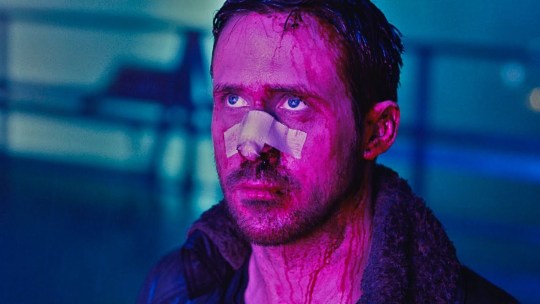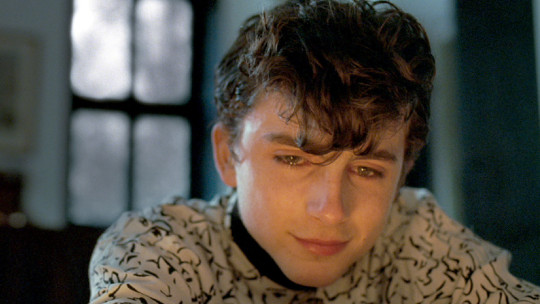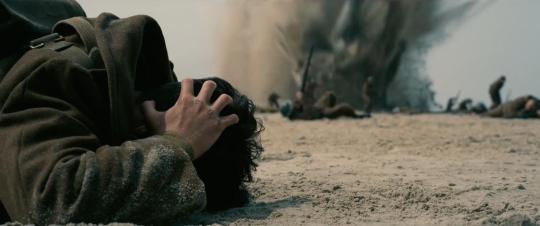#writing these answers made me feel immense fondness about you and our collaborations all over again
Explore tagged Tumblr posts
Note
6, 18, 20, 28, 30 for author’s wrapped!
ao3 wrapped ask game
hello catrina my friend catrina :]
6. Favorite title you used
aw what a good question! the trouble is all my titles are shamelessly lifted from poems and songs, so the element of [how much thought did i put into this arrangement of words] is less useful as a metric. hm. this might be recency bias, but i'm fond of the loneliness of what we did; the loneliness of what was done to us ? the way it is mirroring in the literal words and the poem itself is about, broadly speaking, standing at a distance from what happened to you and only being able to describe it then? looking back at yourself and having the separation necessary to see and talk about yourself. also the "we" and "us" that sort of collapses the space between past and present self. i think it works quite well for scott selfcest :]
18 and 20 both answered here!
28. Favorite work you wrote this year?
oh my god. how could you do this to me. i think i wrote a lot of good stuff this year!! [scrolling through ao3] i like all of these?? i wrote the fucking dogwarts maze fic this year; that one was great. i wrote the owen/ori non-con fic this year?? so much fun scott+owen stuff too... AND the gem x reader fic! oh, fine, i'll just pick you send signal, you listen for an echo -- i'm really proud of the amount of canon review and Getting Into Themes i did for that one.
30. Biggest surprise while writing this year?
am i allowed to say you. do you count as a writing surprise, friend catrina? the funny thing is, i was actually reflecting on this this morning, how... i have been sort of frog-boiled into being interested in e1 worldbuilding because of you (and also evan boatemlag, and also also olly ollyboros, though in both cases i think their interests and intentions differ from yours -- and from each other's --somewhat), and the process of au-crafting with you has been so much fun, and at no point during these processes was i necessarily surprised, because i do like going [okay but what if then--], but having had a chance to look back on the year, i am. pleasantly surprised! you have opened me up to digressions from canon that i had previously thought myself by and large uninterested in. getting to play in those spaces with you and discovering more of what i am interested in and capable of putting my own spin on has been a gift i cannot thank you enough for :]
#chattering sparrow#thank you friend catrina!! :D#writing these answers made me feel immense fondness about you and our collaborations all over again
2 notes
·
View notes
Text
Best Films of 2017, Part II
5. Blade Runner 2049 (dir. Denis Villeneuve)

“Mere data makes a man … A and C and T and G … The alphabet of you, all from four symbols.”
Making a satisfactory sequel to a widely beloved masterpiece like Blade Runner is a borderline impossible task – the weight of expectation is oftentimes simply too great. In keeping with that wisdom, Blade Runner 2049 is not at all a satisfactory sequel - Luckily for fans of the groundbreaking original, it is much, much more than that. A daringly-conceived blockbuster epic that flies in the face of today’s rapid fire genre filmmaking rulebook, 2049 is the kind of bold, visionary sequel that Blade Runner has always deserved, but most of us lacked the optimism to hope for.
With a gargantuan runtime and an average shot length dwarfing that of the average blockbuster, it’s hard to understate the sheer ambition of what director Denis Villenueve has brought to the screens with 2049. But the true miracle is that the magnitude of 2049’s ambition is matched by its achievement every step of the way, thanks in no small part to the partnership of Villeneuve and cinematographer Roger Deakins, whose Oscar-winning work (!!) on 2049 deserves consideration alongside the best of his unparalleled career. Their collaboration is central to the hypnotic mood and texture of the film – a significant departure from that of Ridley Scott’s 1982 film. It would have been easy for Villeneuve and Deakins to replicate the look and feel of the original – many have done it over the years, with varying degrees of success. But rather than do what was easy, they took the original’s oft-imitated cyberpunk world and filtered it through their own creative lens – coming out on the other side with some of the most indelible imagery the year in cinema had to offer. That the film also treads novel thematic territory in the well-worn debate on the existential border between man and machine, cements 2049’s status as one of the all-time great film sequels.
In keeping with the film’s heavy Tarkovsky influences, Villenueve focuses more on finding the right way to ask the hard questions than on constructing tricky ways to answer the easy ones. But Tarkovsky, as brilliant as he was, never made a film that looked anything like this. It’s with this delicate marriage of grand imagery and even grander ideology that Villinueve has defied the odds and done what most thought was impossible … He’s made a brilliant follow-up to an undisputed masterpiece.
In doing so, he just might have made one of his own.
4. Lady Bird (dir. Greta Gerwig)

- Lady Bird. Is that your given name?
- Yeah.
- Why is it in quotes?
- I gave it to myself. It’s given to me, by me.
All too often, authenticity in filmmaking is synonymous with directorial transparency - passive camera and observational direction have become the du jour techniques to achieve a realist aesthetic. But there is a special authenticity to crafting a film that fully and authentically inhabits a specific point of view. Greta Gerwig’s splendid semi-autobiographical debut Lady Bird is just such a special film. Far from being passive and observational, Gerwig’s distinctive voice as an actress transitions beautifully behind the camera as she bottles up all the emotional tumult of high school and unleashes it through a powerhouse performance from one of cinema’s best young actresses.
Though a realistic Oscar push never quite developed, Soairse Ronan has now delivered two performances more than worthy of the honor - at 23, she is already far overdue for greater recognition. As Christine “Lady Bird” McPherson, she works in perfect harmony with Gerwig to deliver big-time laughs and well-earned tears while casting even the most tired coming-of-age tropes in a fresh new light. And, while it’s not clear whether it’s even possible to steal the show from a performer of Ronan’s caliber, leave it to the reliable character actress Laurie Metcalf to give it her best shot. Her big-hearted but overly-critical mother is career-best work that often serves as the film’s emotional backbone. She’s the perfect foil to Ronan’s bursting-at-the-seams teenage rebel, and their fraught relationship is the crux of Gerwig’s film.
The best thing that can be said about Lady Bird – and there are more than a few great things to say – is that it simply rings true. It’s earnest portrayal of a young girl clashing against the boundaries of her world, and herself captures something deeply true about the contradictions of young adulthood. Despite it’s modest packaging, Lady Bird is a genuinely moving and supremely confident debut, bursting with creative ambition and boasting immaculately-realized characters expressing ideas that resonate with audiences beyond the film’s pointedly narrow scope. If that’s not the sign of a brilliant filmmaker, then I don’t know what is.
3. Call Me By Your Name (dir. Luca Guadagnino)

“Nature has cunning ways of finding our weakest spot.“
On the heels of Moonlight’s stunning Best Picture win, few would have expected another masterpiece of LGBTQ cinema to emerge so quickly. But the consensus best film from the Sundance Film Festival’s 2017 iteration was just such an effort. Luca Guadagnino’s entry to the festival was immediately pegged as one of its more buzzed-about titles. His previous two films, 2009’s I Am Love and 2015’s A Bigger Splash - both featuring characteristically excellent performances from Tilda Swinton, with the latter boasting a very uncharacteristically off-the-walls and thoroughly underappreciated turn from Ralph Fiennes - established Guadanigno as a premiere actor’s director. But Call Me By Your Name showcased a newly-subdued directorial style, giving his impressive cast of players even more room to shine.
On this note, it’s hard not to point to Guadignino’s pairing with 2017 breakout Timothee Chalamet as a gift of fate. Working with Guadanigno, Chalamet is revelatory. He delivers a performance with nuance and complexity far beyond his years. As the film follows Chalemet’s Elio finding first love, he projects confidence only to be betrayed by moments of utter vulnerability, hitting those extremes – and every note in between – with absolute perfection. In this year’s Best Actor category, Gary Oldman had the perfect industry narrative, but Chalamet gave the most deserving performance – no one will ever convince me otherwise. Surrounding Chalamet’s masterful work is a stellar ensemble, of which Michael Stuhlbarg is the clear standout. In hands-down the best moment in the year of film, Stuhlbarg delivers a monologue for the ages with his voice hardly rising above a whisper. His is an absolutely brilliant performance that, like most of his unerringly impressive character work, has been criminally ignored.
Call Me By Your Name is destined to join the ranks of the all-time great LGBT romances, but it’s thematic reach and the appeal of its characters are universal. It’s a masterpiece of storytelling that perfectly captures hesitant intimacy blossoming into the kind of love that burns bright and leaves marks that last a lifetime. Guadagnino guides us gracefully through the tender connection at the film’s center without sacrificing the complexity of Elio and Oliver’s emotional journeys. These moments of self-discovery – and discovery of a part of yourself in another – are never straightforward endeavors, but Guadagnino’s warm camera conjures the melancholic beauty in every intricate detail as though he’s recalling a fond memory. Times like these call for films as tender, earnest, and full-hearted as Call Me By Your Name. It’s unmissable.
2. Dunkirk (dir. Christopher Nolan)

“You can practically see it from here ...
What?
... Home.”
Leave it to Christopher Nolan, who already revolutionized the superhero movie, to produce a war film unlike any I’ve ever seen. Like Saving Private Ryan before it, Dunkirk throws out the playbook and finds great power outside the bounds of convention. An absolute masterclass in structure and formal editing – in many ways more ambitious even than the groundbreaking structure of Nolan’s grandiose mindbender, Inception – Dunkirk juggles three different storylines, all of which occur over different timeframes, until they all converge in a breathlessly tense climactic sequence. Weaving these threads effectively is a gargantuan task, but Nolan proves himself more than up to the challenge.
From a directorial perspective, Dunkirk is not far removed from Nolan’s previous efforts. His precise technical command and vision for spectacular set-pieces is nearly unmatched in modern studio filmmaking – but this isn’t news for anyone who’s familiar with his previous work. Where Dunkirk improves dramatically over Nolan’s previous efforts – particularly his more uneven films, like Interstellar and The Prestige – is on the page.
One of the biggest knocks against Nolan as a filmmaker has always been his over-reliance on expository dialogue. (Honestly, how many different perfunctory monologues did it take for him to explain Inception’s dream-within-a-dream structure? Or wormhole travel in Interstellar?) So how did he respond when writing Dunkirk? With a ruthless editorial pen, he chipped away at each bit of dialogue until all that remained were the truly essential elements. The result is the most sparse film of Nolan’s career – it also happens to be the best.
Even with the lack of dialogue Nolan’s cast is given to deliver – or perhaps precisely because of it – Dunkirk is filled with memorable ensemble performances. Cillian Murphy’s shellshocked sailor, Tom Hardy’s steely, resilient pilot, Mark Rylance’s calmly resolved civilian, and yes, even Harry Styles’ fearfully cruel foot soldier, all leave a lasting impression despite limited screen time. It’s a testament to the efficacy to the show-don’t-tell philosophy when embraced by a director as immensely talented as Nolan.
Filling in the gaps is composer extraordinaire Hans Zimmer’s droning score, which might very well be the best, most thematically effective work of his career. Propelling and underlying the cacophonous atmospherics is the simple tick of a clock – so ubiquitously present that you only notice it when it suddenly drops away. It’s a simple gambit that makes for one of the most thrilling moments of the cinematic year. Without Zimmer’s score, it never would have materialized. His work elevates the film – there’s no greater compliment that a composer can be given.
Like The Dark Knight before it, Christopher Nolan has also crafted Dunkirk to be uniquely resonant in the present geopolitical landscape. It’s a morally resolute film, firm in its assertion that certain battles are worth fighting and unambiguously optimistic about the willingness capacity of good people to do so, no matter the cost. It’s an empowering message, harkening back to a day when Western civilization was left with no choice but to do away with equivocations and rise up to face an unambiguously evil force at work in the world. As we see hints and shadows of that same fascistic ideology re-emerging in our present politics, Dunkirk reminds us that we are capable of defeating it, but only at a terrible cost.
1. Phantom Thread (dir. Paul Thomas Anderson)

“Kiss me my girl, before I’m sick.”
With each subsequent entry to his already-legendary filmography, Paul Thomas Anderson further stakes his claim as American cinema’s greatest living auteur. His latest, Phantom Thread marks a particularly fascinating step along his journey to filmmaking greatness. As with all of Anderson’s films, there’s more to Phantom Thread than initially meets the eye. What initially appears to be a peculiar period romance slowly reveals itself to be a devilishly subversive take on power dynamics and love. The film’s austerity and elegance belie it’s prickly subtext, but (of course) it is this exact contradiction that makes Phantom Thread so damn interesting ... There’s not a film this year that has more frequently occupied my thoughts.
In what is reportedly his final role, Danial Day-Lewis is as impressive as ever, doing away with the towering theatrics of his best-known performances (there’s hardly a hint of Daniel Plainview or Bill the Butcher, here) in favor of the meticulous character work that initially brought him to critical esteem. In his hands, Woodcock’s cartoonish mannerisms feel thoroughly organic with nary a false beat to be found, while bringing Anderson’s words to life with extraordinary skill. Lines that could feel like throwaways to another actor take on legendary status as delivered by Day-Lewis. If it is indeed the final time that he will be gracing our screens, then he’s picked a finale befitting his storied career.
As if taking cues from his star and uncredited co-writer, P.T. Anderson directs his latest masterpiece with an uncharacteristically gentle hand. Thrown to the wayside is the visionary flash and technically prodigious camerawork that defined his earlier greats. Instead, Anderson hones in on his unmatched sense for interweaving character and theme and lets his actors the heavy lifting in largely still frames. Unsurprisingly, the results are brilliant, the product of an assured and confident master working at the very height of his powers while refusing to lean on his past successes.
But while the continued collaboration of Anderson and Daniel Day-Lewis sits at the center of any assessment of Phantom Thread, it’s greatness is often solidified by the masterful contributions outside of this titanic duo. Another frequent PTA collaborator, Radiohead guitarist Jonny Greenwood, turns in his best work since his groundbreaking score for There Will Be Blood. His lush piano work and elegant strings match the film’s beats to perfection, rooting out its subtleties and amplifying them beautifully. And Day-Lewis’ co-star, the previously unknown Hungarian actress Vicky Krieps, may well be the most exciting discovery of the year. Acting alongside Daniel Day-Lewis must seem a daunting task to even the most experienced of thespians, but Krieps fearlessly matches him step for step.
Phantom Thread, though it’s the director’s most austere film to date, is a P.T. Anderson film, through and through. By that I mean that it’s deeply strange and continually surprising, but ultimately narrows its gaze on something uncomfortably and fundamentally true about our common human condition. It’s gorgeously made and subtly provocative cinema from a virtuoso filmmaker … What more could you ask for?
#best films of 2017#best films of the year#film review#movie review#film#cinema#phantom thread#dunkirk#call me by your name#lady bird#blade runner 2049#denis villeneuve#christopher nolan#greta gerwig#luca guadagnino#saoirse ronan#timothee chalamet#paul thomas anderson#daniel day lewis
16 notes
·
View notes